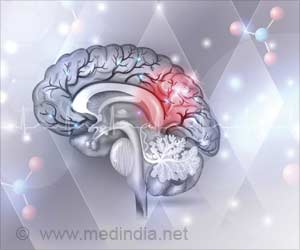Researchers say that rather than low IQ levels, poor working memory could be one possible reason for under-performance in school kids.
The researchers from Durham University surveyed more than 3,000 primary school children of all ages and found that 10 percent of them suffer from poor working memory, which seriously impedes their learning.Nationally, this equates to almost 500,000 children in primary education being affected.
But the researchers found that teachers rarely identify a poor working memory and often describe children with this problem as inattentive or less intelligent.
Working memory is the ability to hold information in your head and manipulate it mentally. You use this mental workspace when adding up two numbers spoken to you by someone else without being able to use pen and paper or a calculator. Children at school need this memory on a daily basis for a variety of tasks such as following teachers' instructions or remembering sentences they have been asked to write down.
The new tool, a combination of a checklist and computer programme informed by several years of concentrated research into poor working memory in children, will for the first time enable teachers to identify and assess children's memory capacity in the classroom from as early as four years old.
The researchers believe this early assessment of children will enable teachers to adopt new approaches to teaching, thus helping to address the problem of under-achievement in schools.
Advertisement
Although the tools have already been piloted successfully in 35 schools across the UK and have now been translated into ten foreign languages, this is the first time they are widely available.
Advertisement
'From the various large-scale studies we have done, we believe the only way children with poor working memory can go onto achieving academic success is by teaching them how to learn despite their smaller capacity to store information mentally.
'Currently, children are not identified and assessed for working memory within a classroom setting. Early identification of these children will be a major step towards addressing under-achievement. It will mean teachers can adapt their methods to help the children's learning before they fall too far behind their peers,' she added.
The checklist, called the Working Memory Rating Scale (WMRS), will enable teachers to identify children who they think may have a problem with working memory without immediately subjecting them to a test. A high score on this checklist shows that a child is likely to have memory problems that will affect their academic progress.
If the teacher feels significantly concerned about a child's performance in class, they can get the child to do the computerised Automated Working Memory Assessment (AWMA).
The tools also suggest ways for teachers to manage the children's working memory loads, which will minimise the chances of children failing to complete tasks. Examples include repeating instructions, talking in simple short sentences and breaking down tasks into smaller chunks of information.
Source-ANI
SUN/K





